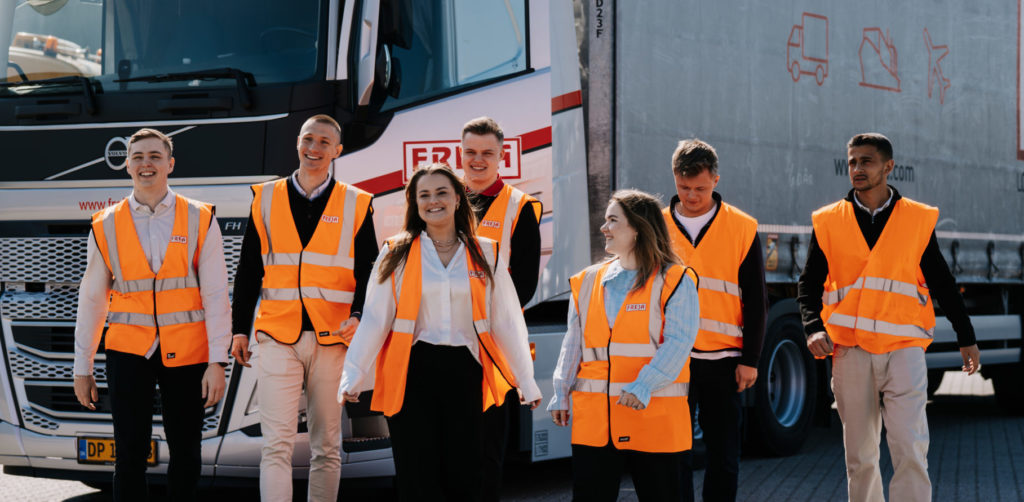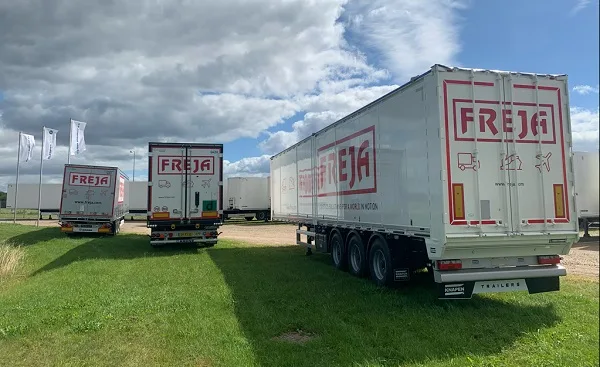
New transportation fees: How do they impact the transport industry and our customers?
In a time when global sustainability and environmental concerns are playing a crucial role, we are witnessing a growing trend where authorities are implementing transportation fees as a means to regulate and shape the transport industry. These fees have the potential for far-reaching consequences for businesses and stakeholders within the transportation sector, thereby affecting our customers who will experience increased costs.
In the following section, we will summarize some of the known fees that the transportation industry will face in the future, including the new Danish road tax, the increase in German Maut fees (German road tax), as well as the Emission Trading System (ETS) 2024 fee for maritime and ferry transport, and how they may impact the transportation industry.
Danish road tax 2025: Challenges and adjustments for businesses in Denmark
With the introduction of the Danish road tax in 2025, transport companies will face new challenges. The tax, based on the vehicle's characteristics and emissions, will increase operating costs for all trucks using the Danish road network. This is intended to motivate companies to consider more fuel-efficient vehicles or alternative transportation methods to reduce costs and minimize environmental impact.
Unfortunately, viable alternatives are currently limited. These need to be rolled out first and involve vehicles capable of using new "fuels" as an alternative to regular diesel, namely hydrogen, biogas, and electric trucks. These alternative fuels require infrastructure where vehicles can charge/fuel up with the new types of fuels, and their acquisition cost needs to decrease to contribute to the green transition.
Members of the European Parliament approved new EU rules on the establishment and regulation of infrastructure for alternative fuels (AFIR) during the plenary session on July 11, 2023. Thus, the responsibility lies with the Transport Minister, Thomas Danielsen. AFIR sets out the deployment of alternative fuels' infrastructure for both battery-powered and hydrogen-powered vehicles on the trans-European transport network (TEN-T), at urban hubs, and secure parking areas.
According to the agreement, electric charging infrastructure for heavy vehicles should be installed every 120 km along 15 percent of the entire length of the TEN-T network by the end of 2025. The distance will then be reduced to 60 km on the most heavily traveled roads and 100 km on the remaining road network.
Regarding hydrogen, refueling infrastructure should be possible every 200 km on the TEN-T core network by the end of 2030. Currently, there is a long way to go from the above with only two public charging stations in Denmark (as of August 2023).
Increase in German Maut fees (road tax): Impact on international road transport
Germany's decision to increase Maut fees by nearly doubling the fee per kilometer starting December 1, 2023, will have a significant impact on the cost structure of international transport to and from Germany, as well as transit through Germany. For businesses, this will mean increased freight costs.
ETS 2024 fee: Maritime and air freight, as well as ferries
New guidelines for the Emission Trading System (ETS) in 2024 will directly impact maritime freight and ferries. Going forward, companies will need to invest in CO2 quotas, which will reflect CO2 emissions. These quotas will be traded on a commodities exchange. This change aims to steer the transportation industry towards more sustainable practices and promote investments in greener technologies, particularly in the context of maritime transport and ferry services. Fluctuations in the prices of these CO2 quotas may translate into increasing costs for these modes of transportation from 2024 onwards.
ETS will be gradually implemented, with ships required to report on 40% of CO2 emissions in 2024, increasing to 70% in 2025, and finally reaching 100% in 2026.









